What started as a quick way for two college roommates to make “a few bucks” to pay their rent, nine years later Airbnb has rocketed into a global marketplace offering over three million listings in 65,000 cities and 191 countries. It’s fair to say, the founders probably no longer need to worry about paying rent.
So, why is this sharing platform so popular? The graphics below reveal all…
Top Airbnb cities
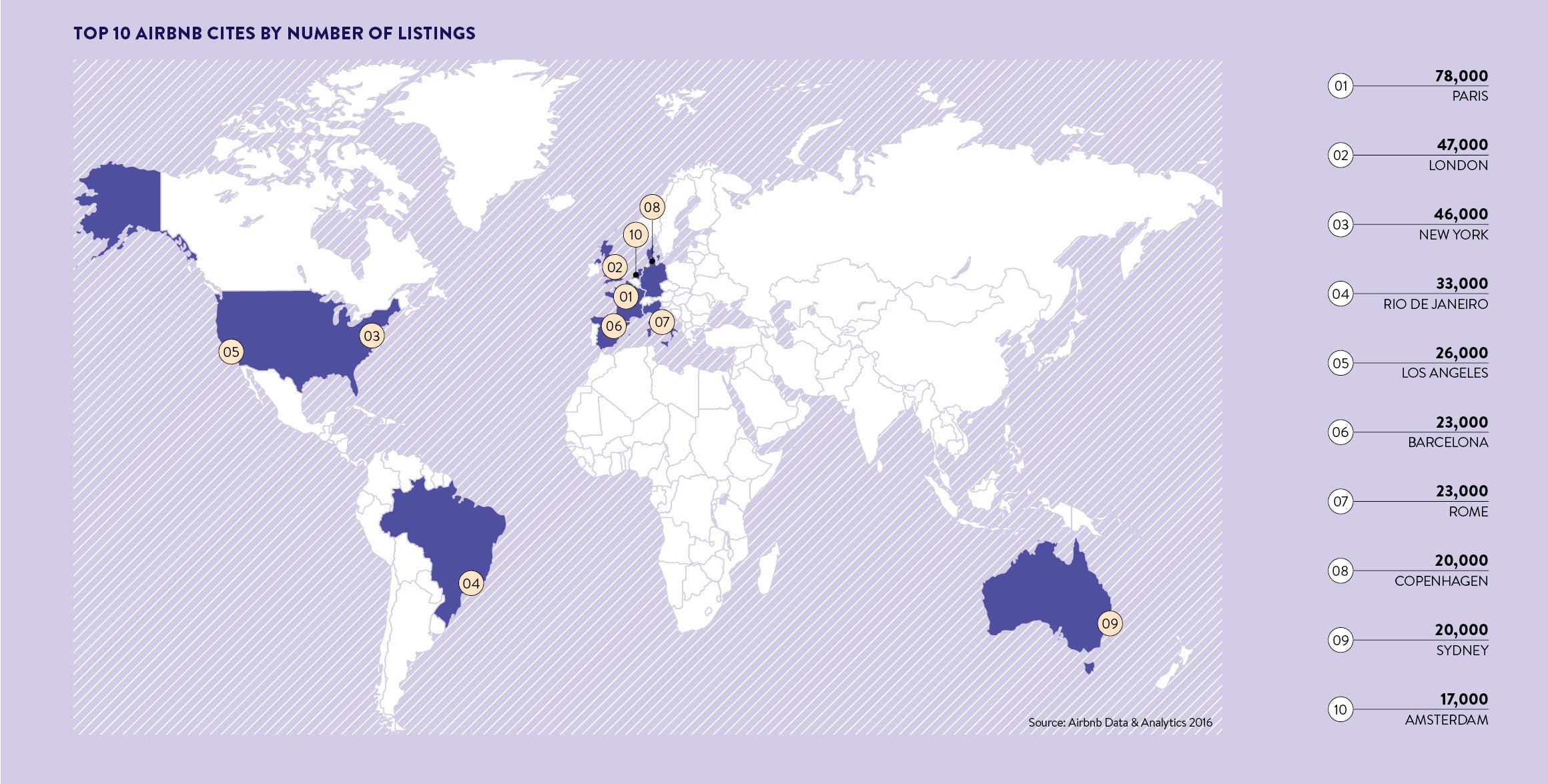
The city of love is the place with the most Airbnb listings, with a whopping 78,000 rentals registered on the platform. Next is the UK capital with 47,000 homes listed, followed closely behind by New York with 46,000 listings. Interestingly, the majority (six out of 10) of the top Airbnb cities are in Europe.
Why people use Airbnb
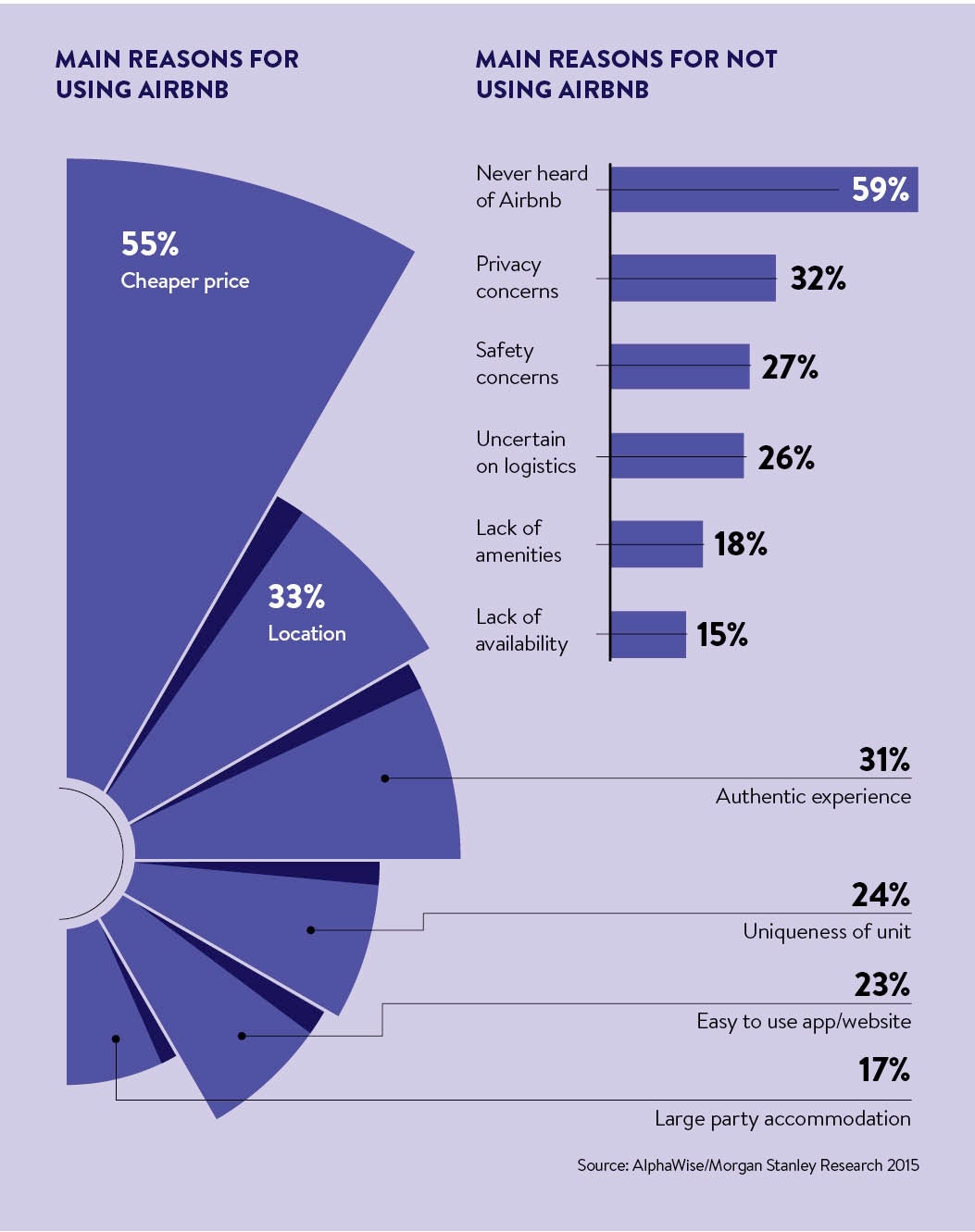
The main reason people choose Airbnb is price, 55 per cent say it’s cheaper than other providers. After price, the biggest factor is location (chosen by 33 per cent), followed by authentic experience (31 per cent) and uniqueness (24 per cent).
On the other hand, the main reason people do not use the platform is down to brand awareness. Fifty-nine per cent of those who haven’t used Airbnb say they don’t because they have never heard of it. Showing that the platform needs to reach out to the less digitally savvy through other traditional marketing mediums. Other reasons for not using the platform include privacy concerns (a factor for 32 per cent) and safety concerns (27 per cent).
But, is it really cheaper than hotels?

According to the research above, users make a big saving when they choose Airbnb instead of a traditional hotel. The graph shows the global average daily rate difference, this simply means the difference in price per night between Airbnb and hotels. Globally, the average difference is an estimated $100 every night. However, in Europe the saving jumps to $105 and the savings gap in America is even larger at $115.
How long people stay
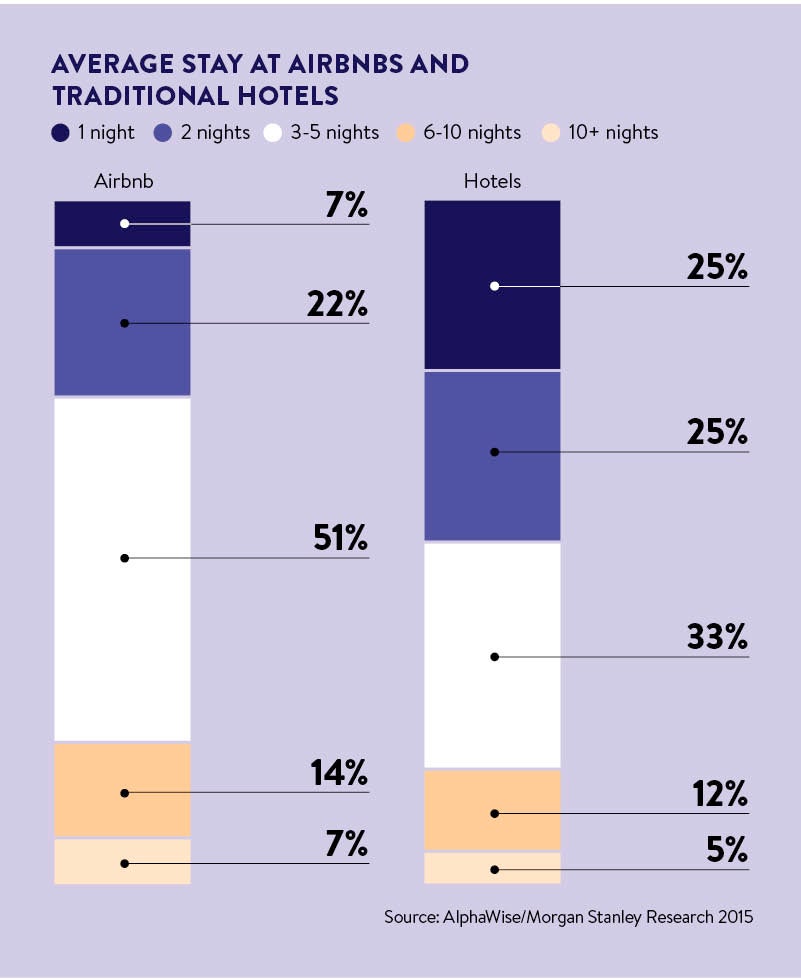
The majority of Airbnb guests stay at rentals for three to five nights. The chart shows the average stay at Airbnb rentals differs from traditional hotels. For example, only seven per cent stay one night, whereas 25 per cent of individuals stay at hotels for only one night.
The end of hotels?
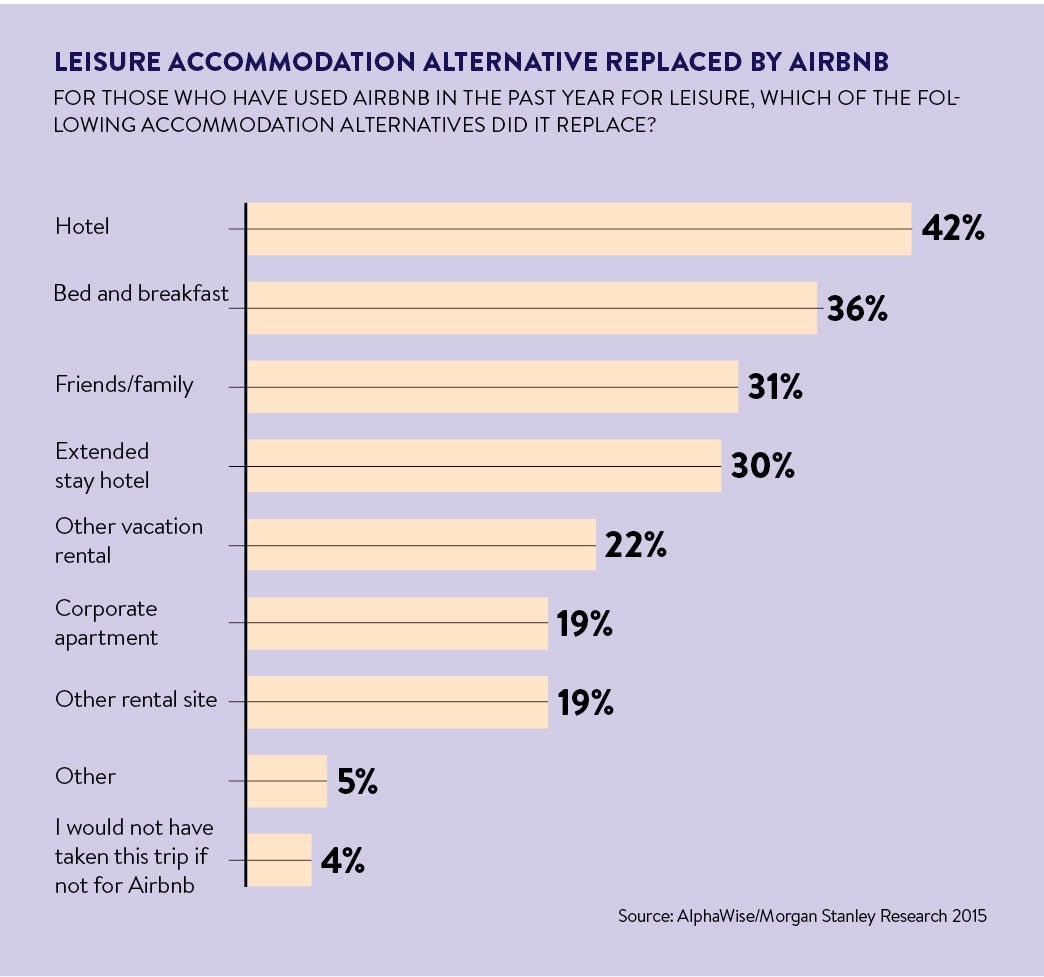
Forty-two per cent of people that usually choose hotels have replaced it with Airbnb in the past year. Other accommodation options that have been affected include bed and breakfasts and holiday rentals. People are even choosing an Airbnb over staying with family and friends, 31 per cent to be exact!
Furthermore, the two graphs below highlight the impact Airbnb will have on the hotel industry in the future. The forecasted impact on occupancy and revenue show hotels will lose guests, and therefore profits to a dramatic extent in the long-term. These findings must be worrying for the hotel industry, who cannot stop the rise of this popular sharing platform but must try to compete with it.
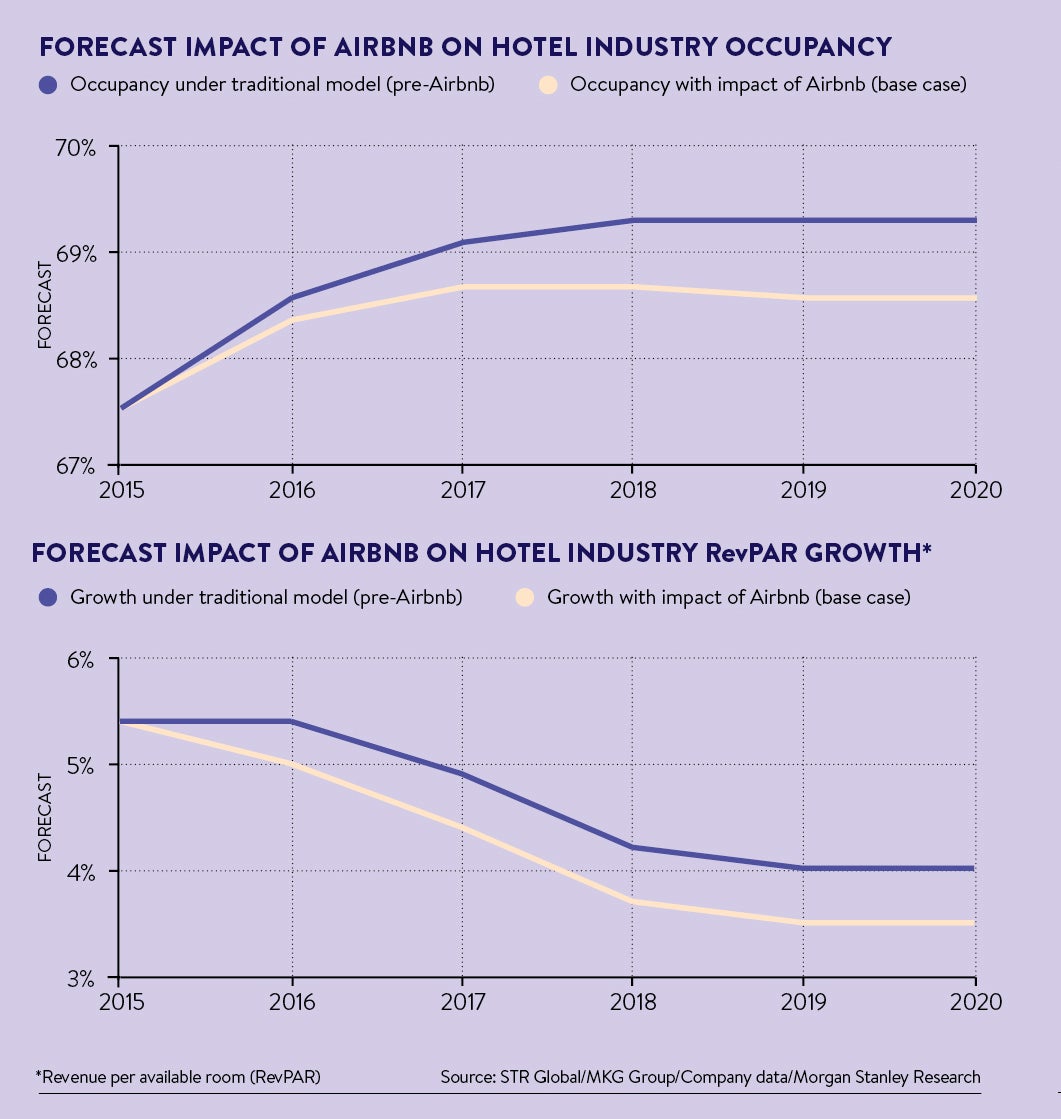
Want to know more about how Airbnb will impact the hotel industry? View the full graphic here
Top Airbnb cities

Why people use Airbnb

